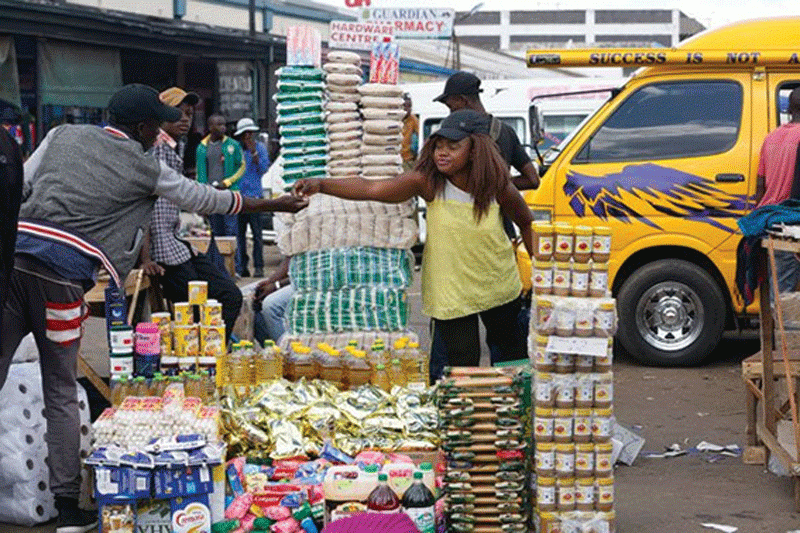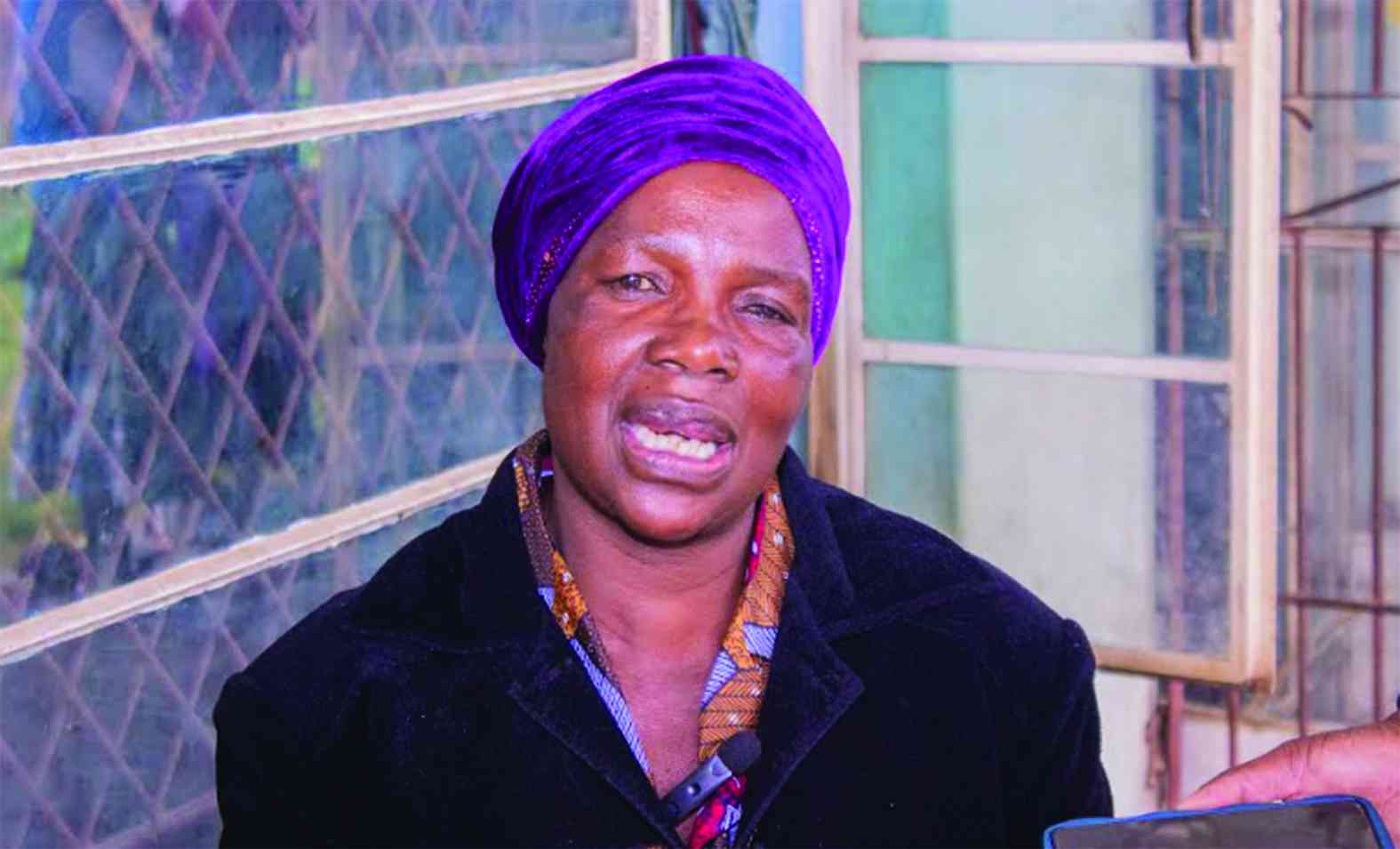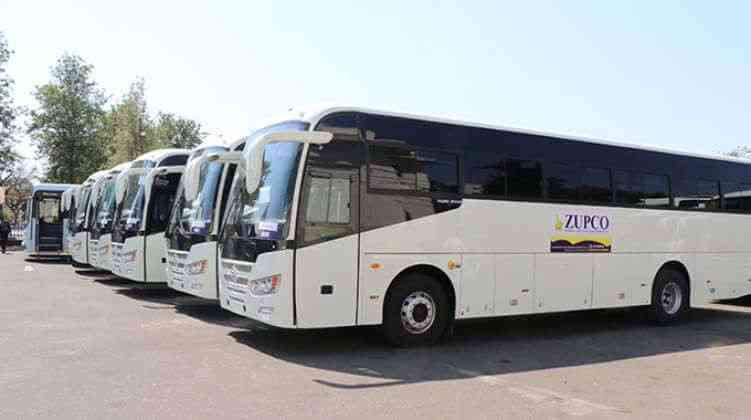
AS the sun sets over Harare's central business district (CBD), the streets suddenly become intensely alive.
Shoppers flock to tuckshops, strategically located throughout the CBD, offering a wide variety of goods. Conversations are lively as hard bargaining ensues, while an aroma of street food being prepared wafts through one avenue.
As streetwise shopping increases Zimbabwe's capital city, supermarkets are crying foul as their bottom lines are munched thin by street vendors and tuckshop traders who can do anything to push sales.
And allegations of authorities dishing out tuckshop licences to foreigners in contravention of the law, are not making matters any easier for the conventional retailers.
Retail space in the capital Harare is now dominated by Indians, Chinese, Pakistanis, Nigerians, Malawians and Tanzanians among others, many of whom are into the grocery business.
Over the years, many small shops have mushroomed in the city, seriously threatening the survival of the traditional supermarket chain stores.
Economic Empowerment Group vice-president Munyaradzi Kashambe told NewsDay that foreigners have hijacked the retail sector.
“As an economic pressure group, we are aware that foreigners have invaded economic areas reserved for locals and we will soon make noise about it,” he said.
- Inside supermarkets, tuckshops war
- SA: Season of despair awaits ‘illegal’ immigrants in 2024
Keep Reading
Harare City Council (HCC) is putting the blame on building owners who rent out buildings to foreigners.
The HCC small to medium enterprises committee chairperson Denford Ngadziore said the city fathers have an SME policy which has not been followed.
“We know that most tuckshops are operated by foreigners which is against the law. Council has no power to come between business partners but building owners are renting out their buildings to foreigners who in turn convert them to retail shops,” he said.
Ngadziore said the SMEs policy reserves some businesses for women and youths.
In February 2020, President Emmerson Mnangagwa signed into law the Zimbabwe Investments and Development Agency Act (ZIDA) [Chapter 14:37] a law aimed at promoting entry, facilitation and protection of investment in Zimbabwe.
It was introduced as part of the government’s efforts to streamline investment regulations and create a business-friendly environment attractive to both local and foreign investors.
The ZIDA Act allows investors to enter all sectors of the economy, but reserves the retail sector to local people.
The foreign brigade which has taken over the retail business have, however, turned the fortunes of shoppers into a blessing in disguise. Many ordinary shoppers have switched from big supermarkets to tuckshops, citing various reasons for their preference.
"I prefer shopping at tuckshops because they offer lower prices compared to big supermarkets. I can find all the essentials I need at affordable prices, which is important for my family's budget,” said Chipo Moyo, who is employed in a cell phone accessories shop in Harare's CBD.
Without adequate capital to set up the tuckshops, many Zimbabweans have been reduced to street vendors.
They have also literally invaded all strategic points, including verandas of big retail shops, selling a variety of goods including basic commodities in foreign currency in the country’s major cities and towns further putting a strain on supermarkets.
A survey by NewsDay also revealed that vendors are now taking advantage of the situation, buying goods in local currency and reselling them on the streets in US dollars.
"Essentially everything is being sold on the streets making it easier for me to access. I don't have to spend money on transportation or waste time traveling to big supermarkets. It's a win-win situation for me,” said another shopper Alfred Mkono.
Government is downplaying the currency chaos saying it has engaged industry to tame the sky-rocketing prices of basic commodities.
Zim Price Check, an organisation which monitors prices, said the competition between big supermarkets and tuckshops was benefitting the consumer.
“Mazoe Raspberry goes for US$2,50 in big supermarkets and US$2,30 in tuckshops. The stiff competition with the informal sector seems to be benefiting the consumer,” Zim Price Check said.
One of the tuckshop owners who requested anonymity said they are able to offer lower prices due to several factors.
“First, they have lower overhead costs compared to big supermarkets, operating from smaller premises and requiring fewer staff members. This allows them to pass on the cost savings to their customers. Additionally, tuckshops often source their products directly from wholesalers, cutting out the middleman and reducing costs further,” he said.
“Furthermore, tuckshops are known for their flexibility in pricing and willingness to negotiate with customers. This personalised approach allows shoppers to secure better deals, especially when buying in bulk or on a regular basis. These factors contribute to the affordability of tuckshops, making them an attractive option for cost-conscious consumers.”
While tuckshops are flourishing, big supermarket operators are worried.
They argue that the rise of tuckshops has led to a loss of customers and reduced sales. Some operators have cited unfair competition, claiming that tuckshops operate with fewer regulations and can offer lower prices due to tax evasion and informal trading practices.
However, Finance ministry permanent-secretary, George Guvamatanga said tuckshops have no negative impact on formal retailers, insisting that managers in most formal businesses were failing to respond to the changing economic dynamics.
Speaking at the recent Zimbabwe Economic Development Conference in Victoria Falls, Guvamatanga said: “Let me come back to another very controversial issue about these tuckshops versus formal retail. There was a retailer who went out last week complaining about the influx of tuckshops.
“But how do you complain about a tuckshop which is paying five times more per square metre in rentals?
“It does not have access to credit so buys all the goods for cash. Possibly, they do not have a better system than what you have. They do not have access to the cheaper foreign currency that is available in the market, they have to go to source for it from the parallel market.”
Guvamatanga quizzed the rationale behind big retailers who complain that they are not able to compete because they have been taken out of business by tuckshops.
However, responding to Guvamatanga, renowned economist Gift Mugano said the supermarkets have a genuine cry and blamed the Finance ministry for the big retailers’ woes.
He said the exchange rate, which has resulted in sustained disparities between formal and parallel market rates is the very same reason why goods in supermarkets are very expensive, while the informal sector is competitive because they do not abide by the government-pegged exchange rate.
“Your ministry liberalised the imports for about 11 products. These commodities are coming through duty free and VAT-free. Tuckshops are importing these commodities, whilst our supermarkets procure the very same commodities locally — a position that is economically and morally sound aimed at fostering job creation and local content,” he said.
He also argued that formal businesses meet massive compliance hurdles ranging from tax compliance, Nssa, Aids levy, heavy rentals, payment of salaries governed by Nec, while the informal sector evades most of these costs.
“Exchange rate spikes and chronic inflation has resulted in erosion of capital and cash flows for the formal businesses. The informal sector can beat this challenge by solely selling in United States dollars but formal businesses cannot do the same because of the need to comply with the laws, which should be the case anyway,” he said.











